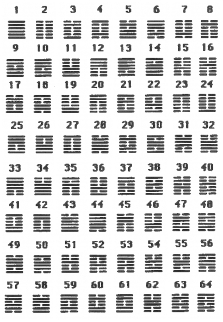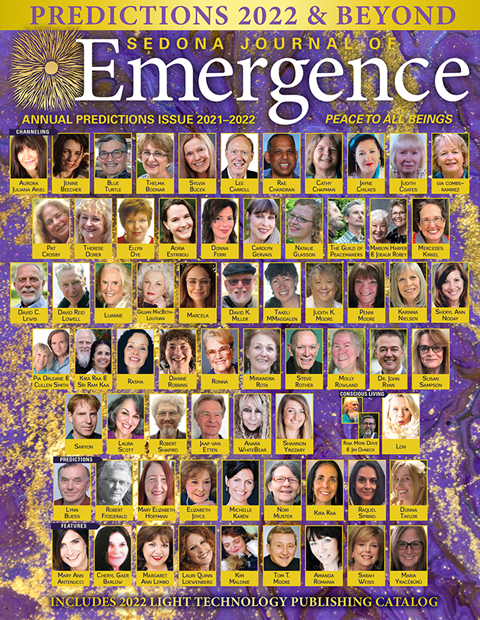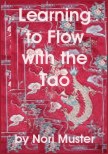
I Ching Predictions for 2022
by Nori Muster
In 2022, we will still face climate change and the Covid pandemic. We also still live in a time of polarization where a significant minority of Americans refuse mainstream reality. Another surprise about reality, the Pentagon finally admitted UFOs are real, and some military pilots see them in the sky on a regular basis. We welcome honest revelations because when the truth comes out, it validates the conspiracy theories that are true and shoots down those that are false. History will prove conspiracy theories one way or the other, and as that happens, more of us will come together around a shared reality.
To look into the future, we can turn to the ancient Daoist oracle, the Book of Changes. The I Ching consists of sixty-four hexagrams, stories, each told in six lines. The book dates back to the ninth century BCE, so it is close to 3,000 years old. Daoist temples still read the I Ching for visitors, and the teachings are still relevant. The I Ching focuses on positive attitude. We cannot always control what happens, but we can control how we react. To identify the best (and worst) attitudes for the challenges ahead, I have chosen three Hexagrams: Nourishment (Hexagram 27), Assembly (Hexagram 45), and Removing Impurities (Hexagram 43).
Hexagram 27 - Nourishment
Taking in Sustenance
This hexagram explains how building up our inner strength prepares us to approach the complex problems we face. Proper nourishment requires resourcefulness. Trying to cheat or take advantage of others will not make us stronger. Hurting others is self-destructive because the way we treat others comes back to us. Thus, the main lesson in this hexagram is to learn to nourish our souls honestly.
The first line (yang) shows one who turns away from the tortoise that symbolizes their own center of abundance, wisdom, and fortune. If someone has turned away from their center, all that's left is to stare at others with envy. Someone in that position must learn how to turn back to their inner wealth.
The second line (yin) shows someone looking up, down, anywhere but inside for energy. The third line (yin) shows someone refusing to look within, but feeling a sense of entitlement, like it is everyone else's responsibility to give them nourishment.
The fourth line (yin) shows the best attitude: "Watch the ground with the unwavering stare of a tiger." This is the level of seriousness and confidence we need to push forward to address our personal and collective health, and health of our planet. Each of us must take our responsibilities seriously, and be ready to play our part in solving the collective problems.
The fifth line (yin) shows how difficult the task at hand will be for those who insist on draining others, because they cannot nourish themselves. It says people who refuse to look within, may as well do nothing for ten years, because "no good will come from this lack of nourishment."
The sixth line (yang) "shows one who provides nourishment to others." If someone lacks nourishment, it's okay to help them. Even though generous people risk getting exploited, it's still a positive attitude and their gift can inspire others to keep going.
Hexagram 45 - Assembly
Community Coming Together
Good things can happen in 2022, and that will include prayers for peace. This Hexagram describes a good leader who performs a ritual for peace. The lines of the hexagram show the attitudes the people may have as they come out and take part in the ritual.
The first line (yin) shows a person who is confused and feels defeated. Nevertheless, this person comes to the ritual and participates.
The second line (yin) shows someone who goes forward with gratitude, and with the assistance of a mentor. Although this person can only manage a small offering, he or she is welcome.
The third line (yin) shows someone who is tired, confused, and depressed about what's going on. Still the person comes forward to participate.
The fourth line (yang) shows a leader who is sincere and the ritual invokes peace. The fifth line (yang) shows how the people who have come to take part can contact their own sincerity, along with the leader, while the ceremony is taking place.
The sixth line (yin) shows a humble person who feels a sense of regret after the ceremony. This is a person who listens to their conscience, and the sense of regret shows evidence of cleansing. For this person, the ritual marks the beginning of their determination to bring peace inside and outside, into the world. In this case, humility and regret are good attitudes that will propel some of us forth to make the changes we need to make.
Hexagram 43 - Removing Impurities
Holding Corrupt Statesmen Accountable
This Hexagram explains the determination needed for a prosecutor to bring a weak-minded or corrupt statesman to justice. Leaders who turn their followers against the truth are a danger to society. If they cause violence, we need to bring them to justice. When followers learn their leader is lying to them, it can awaken them to the danger of following a narcissistic leader.
The lines in Hexagram 43 describe the positive or negative attitudes a prosecutor might take during the trial of corrupt statesmen. The first line (yang) "shows the prosecutor trying to advance their case simply by movement of the toes." This is not enough. The second line (yang) shows the prosecutor explaining why the impure elements scare him. This gets the message across.
The third line (yang) shows a prosecutor who tries to press his or her point by threatening the court. This is a bad attitude that won't help. It's better to do more research of the evidence. The fourth line (yang) shows a prosecutor who is arrogant and egotistical. It's better to forget about ego, be humble, and listen to the court's good advice.
The fifth line (yang) shows a prosecutor laying out a case with the same determination as someone who pulls weeds from their garden. There may be a disordered mess, but if the prosecutor goes through one point at a time, as though pulling one weed at a time, then the case is clear. This is the best attitude.
The sixth line (yin) shows the prosecutor going forward without any help. In this situation, sacrificing to do everything alone is a self-defeating attitude. However, the prosecutor can be successful with the people's help. They appreciate his courage and he gets the benefit of their support. This final hexagram reminds us everyone plays a part in a better future.
Nori Muster is the author of Learning to Flow with the Dao: The 64 Hexagrams of the I Ching. You can read your I Ching at her site, surrealist.org. She has a Master of Science degree from Western Oregon University and her thesis is on art therapy. You can find her graduate work at norimuster.com.

This essay originally appeared in Sedona Journal of Emergence, Predictions 2022 & Beyond, Annual Predictions Issue 2021-2022.

The 64 Hexagrams of the I Ching: Learning to Flow with the Tao
The I Ching is the ancient Taoist book of metaphors, written to offer guidance in the inevitable changes of life. The I Ching consists of sixty-four hexagrams, the number of combinations mathematically possible with six solid and broken lines. The broken lines "- -" are yin, or passive, dark, yielding. The solid lines are yang, active, light, reaching. Ancient Taoist scholars recorded meanings for each of the sixty-four combinations.
Your future is in your hands. Consult the I Ching for ideas that lead to clear thinking and positive mental attitude. The I Ching teaches you to flow with changes. Create positive change from the inside through conscious living. Take the time to reflect on your attitudes and ideas.
This interpretation of the ancient text I Ching has been online since 2000. Thousands of visitors have accessed the oracle through Surrealist.org. Now it is available at Amazon. Learn to flow with change instead of resist it.
Learning to Flow with the Dao (paperback or e-book) at Amazon.com - click here
I Ching reading (free) at Surrealist.org - click here.
Index